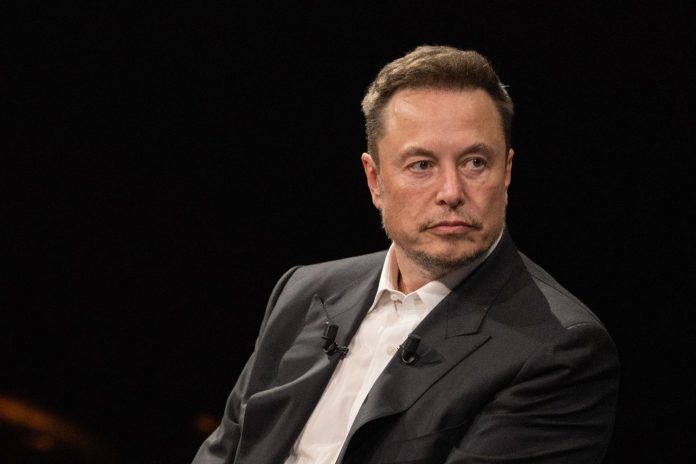In a dramatic twist in the world of artificial intelligence, OpenAI CEO Sam Altman has firmly declined Elon Musk’s massive $97.4 billion offer to buy the company. The move comes amid an ongoing battle over OpenAI’s direction, as Musk aims to bring the organization back to its non-profit roots. However, Altman’s response, posted on X (formerly Twitter), was a cheeky counteroffer to buy Twitter for $9.74 billion instead. This latest development has intensified the rivalry between the two tech titans, drawing global attention.
In This Article:
The Background: Musk’s Ties with OpenAI
Elon Musk was one of the co-founders of OpenAI in 2015, originally conceived as a non-profit organization dedicated to AI research. He invested approximately $45 million in the project before parting ways with the company in 2018, citing a power struggle with Altman and disagreements over the company’s direction. Musk has since been vocal about his concerns regarding OpenAI’s commercialization, accusing the firm of drifting from its original mission.
In 2024, Musk sued OpenAI multiple times, alleging that the company had abandoned its core principles and had become overly profit-driven. This legal battle set the stage for his recent bid to buy OpenAI outright and restructure it as a non-profit once again.
Elon Musk’s $97.4 Billion Offer
According to a report by The Wall Street Journal, Musk and a group of investors formally proposed a staggering $97.4 billion buyout to OpenAI’s board members. The objective was to regain control and revert OpenAI back to its original non-profit model, ensuring that AI advancements serve humanity rather than commercial interests.
Musk’s legal team argued that if OpenAI’s leadership intends to continue as a for-profit entity, the charitable foundation that initially controlled OpenAI should be fairly compensated. This claim reignited the long-standing debate about the ethics of AI commercialization and control over one of the most advanced AI research organizations in the world.
Sam Altman’s Blunt Rejection
Rather than engaging in negotiations, Sam Altman wasted no time in rejecting Musk’s offer. He took to X (Twitter) to respond with a humorous counterproposal:
“No thanks, but we’d be willing to buy Twitter for $9.74 billion if you’re interested.”
This statement not only dismissed Musk’s bid outright but also took a jab at his leadership of X, which has faced widespread scrutiny since his acquisition of the platform in 2022.
The Bigger Picture: OpenAI’s Profit vs. Non-Profit Debate
At the heart of this conflict is a fundamental disagreement over how AI research should be governed. Musk believes that OpenAI has strayed too far from its original purpose by focusing on profit-driven ventures rather than open-access AI research. OpenAI, on the other hand, maintains that its transition to a for-profit subsidiary was necessary to attract top talent and secure funding to accelerate AI advancements.
In a blog post, OpenAI clarified its stance:
“A new for-profit subsidiary would be formed, capable of issuing equity to raise capital and hire world-class talent, but still at the direction of the Nonprofit.”
This hybrid structure has allowed OpenAI to secure billions in funding while still being influenced by a governing nonprofit board. However, critics argue that this model blurs ethical lines and gives disproportionate power to private investors.
Musk’s Legal and Strategic Moves
Musk’s persistent legal battles with OpenAI suggest that he is determined to regain influence over the AI industry. He has frequently voiced concerns about the existential risks associated with AI and has advocated for greater transparency in AI development.
While his latest bid was rejected, it is unlikely to be the end of the story. Musk has the financial power and strategic acumen to continue challenging OpenAI’s decisions, either through legal action or by investing in rival AI ventures. In fact, he has already launched xAI, his own AI company, aimed at developing safer and more ethical artificial intelligence.
What’s Next for OpenAI and Musk?
With OpenAI maintaining its stance as a for-profit entity and Musk continuing to push for its restructuring, the battle over the future of AI remains intense. Some key possibilities include:
- Further Legal Action: Musk may escalate his lawsuits against OpenAI, challenging the legality of its profit-driven model.
- Competing AI Ventures: If Musk fails to take over OpenAI, he is likely to intensify efforts on his own AI projects, using xAI to compete directly.
- Investor Influence: The ongoing conflict may impact investor confidence in OpenAI, potentially affecting future funding rounds and strategic partnerships.
- Government Regulation: Given the stakes involved in AI governance, regulators may step in to examine OpenAI’s structure and whether it aligns with public interest.
Sam Altman’s outright rejection of Musk’s $97.4 billion bid highlights the stark ideological divide between the two tech leaders. While Musk aims to restore OpenAI’s non-profit status and realign it with its original mission, Altman is steadfast in his belief that a for-profit approach is necessary for progress. As the AI race heats up, this high-stakes power struggle is far from over. Whether through legal battles, strategic investments, or direct competition, Musk is unlikely to back down.




